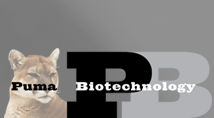预约演示
更新于:2025-05-07
HER2 x HER3
更新于:2025-05-07
关联
18
项与 HER2 x HER3 相关的药物作用机制 HER2拮抗剂 [+1] |
在研机构 |
原研机构 |
在研适应症 |
非在研适应症- |
最高研发阶段批准上市 |
首次获批国家/地区 美国 |
首次获批日期2024-12-04 |
作用机制 EGFR拮抗剂 [+2] |
在研机构 |
原研机构 |
最高研发阶段临床2期 |
首次获批国家/地区- |
首次获批日期1800-01-20 |
作用机制 EGFR拮抗剂 [+2] |
原研机构 |
在研适应症 |
非在研适应症- |
最高研发阶段临床1期 |
首次获批国家/地区- |
首次获批日期1800-01-20 |
45
项与 HER2 x HER3 相关的临床试验NCT06435351
Precision DC: Personalized Neoantigen Dendritic Cell Vaccine Pilot Trial for High Risk Triple Negative Breast Cancer After Neoadjuvant Therapy
This is a pilot protocol to evaluate the safety, feasibility, and immunogenicity of a personalized breast cancer vaccine based utilizing whole exome sequencing data of a patient's residual breast tumor following neoadjuvant chemotherapy.
开始日期2024-06-12 |
NCT05809752
A First in Human Dose Escalation of Dendritic Cell Vaccine (DCV) Administered Intrathecally (IT) Primed Against HER2/HER3 in Patients With Leptomeningeal Disease (LMD) From Triple-Negative Breast Cancer (TNBC) or HER2+ Breast Cancer (HER2+BC)
The purpose of this study is to learn about the effects of the study treatment, Dendritic Cell Vaccine (DCV), to find the highest dose of the study treatment that can be given safely to Breast Cancer patients with Leptomeningeal Disease
开始日期2023-08-22 |
NCT05588609
A Phase 2 Study Evaluating Activity of Zenocutuzumab (MCLA-128) in Patients With or Without Molecularly Defined Cancers
This is a Phase II, open-label, 2-arm, multicenter, international study designed to evaluate the efficacy of zenocutuzumab alone or in combination in patients with the following diagnoses:
Group A: NRG1+ NSCLC Group B: mCRPC
Group A: NRG1+ NSCLC Group B: mCRPC
开始日期2022-11-17 |
申办/合作机构 |
100 项与 HER2 x HER3 相关的临床结果
登录后查看更多信息
100 项与 HER2 x HER3 相关的转化医学
登录后查看更多信息
0 项与 HER2 x HER3 相关的专利(医药)
登录后查看更多信息
2,291
项与 HER2 x HER3 相关的文献(医药)2025-06-01·Biomedicine & Pharmacotherapy
Neratinib and metformin: A novel therapeutic approach against HER2-Positive Breast Cancer
Article
作者: Vranic, Semir ; Moustafa, Ala-Eddin Al ; Al-Thawadi, Hamda ; Hassan, Arij Fouzat ; Saeed, Sumayyah ; Mateo, Jericha Miles ; Ulamec, Monika ; Kheraldine, Hadeel ; Peric-Balja, Melita ; Merhi, Maysaloun
2025-05-01·Nature Reviews Clinical Oncology
Emerging importance of HER3 in tumorigenesis and cancer therapy
Review
作者: Garrett, Joan T ; Yu, Helena ; Feroz, Wasim ; Tendler, Salomon ; Kilroy, Mary Kate
2025-04-15·Cancer Research and Treatment
The Era of Antibody Drug Conjugates in Lung Cancer: Trick or Threat?
Review
作者: Riudavets, Mariona ; Planchard, David
997
项与 HER2 x HER3 相关的新闻(医药)2025-05-04
·医药速览
随着抗体药物偶联物(ADCs)的迅速发展,目前已有12种ADC获得FDA批准,另有超过280种不同的ADC处于临床开发阶段。尽管在ADC药物的研发上取得了一定的成功,但仍然存在重大挑战。特别是,将临床前研究结果转化为临床应用仍然十分困难。这是因为许多ADC常与血液学毒性相关,这种毒性可能是由于ADC直接杀伤造血细胞,或由在身体其他部位释放的载荷间接引起的。因此,开发能够预测临床结果的体外检测方法成为ADC药物向临床转化的不可或缺的条件。近日的AACR大会上,Zymeworks公布开发了一种可能会改善ADC的开发,并指导选择最优的连接子和载荷的体外预测血液学毒性的方法。图1. 骨髓来源的造血干细胞/祖细胞在正常分化为谱系特异性细胞及其相关血液学毒性过程中的细胞层级结构示意图。研究方法Zymeworks测试了不同的抗体药物偶联物(ADC)载荷(exatecan、DXd、SN-38、ZD06519、DM1、DM4、MMAE、MMAF),以了解游离载荷本身对非靶向毒性的影响。通过将靶向抗体和非靶向抗体与一种共同的hemiasterlin微管抑制剂偶联,同时改变可被蛋白酶切割的连接子,生成了不同的ADC,以评估连接子对靶向和非靶向细胞毒性在体外的影响。并且在最后,Zymeworks测试了两种具有相同药物-连接子的临床验证的ADC,以评估抗体在ADC非靶向毒性中的影响。图2. 抗体药物偶联物(ADC)的示意图,使用这些ADC进行了克隆形成、可切割性、细胞毒性以及/或体外稳定性检测。Telisotuzumab和Palivizumab ADC的药物抗体比(DAR)为4(±0.2),而Trastuzumab和Patritumab ADC的DAR分别为7.8和7.7。人源克隆形成细胞(CFC)检测能够预测某些与抗体药物偶联物(ADCs)相关的临床毒性。Zymeworks从骨髓中分离出健康的CD34⁺造血干细胞,并与多种细胞因子共同培养,以诱导其分化为红系(BFU-E)、髓系(CFUGM)或巨核系(CFU-Mk)祖细胞,随后用不同浓度的抗体药物偶联物(ADC)、载荷或仅用制剂缓冲液(溶剂对照)进行处理。孵育后,计数克隆数量,并通过比较处理组与溶剂对照组的克隆数量,确定克隆抑制百分比。图3. 克隆形成细胞(CFC)检测流程的示意图。载荷——ADC载荷对人类红系、髓系和巨核系祖细胞具有不同的固有细胞毒性。图4. 在克隆形成细胞(CFC)检测中(如图3所示),游离拓扑异构酶1抑制剂(TOPO1i)和微管抑制剂(MTI)载荷的体外细胞毒性。上图的结果显示,Exatecan在CFC检测中表现出比其他TOPO1i载荷更高的细胞毒性。类似地,对于MTI载荷,DM4和MMAE显示出最高的细胞毒性,其次是DM1和MMAF。连接子——比较具有相同抗体和载荷但不同连接子的非靶向ADC,突出了连接子对非靶向毒性的潜在影响。表1. 不同ADC在克隆形成细胞(CFC)检测中的细胞毒性(EC₅₀,单位为nM,检测方法如图3所示)。抗体——比较具有相同载荷和连接子但不同抗体的ADC,突出了抗体对非靶向毒性的潜在贡献。图5. 克隆形成细胞(CFC)检测(如图3所示)。图中显示,Patritumab deruxtecan(HER3-DXd)表现出比Trastuzumab deruxtecan(T-DXd)更高的细胞毒性,这与在临床环境中接受HER3-DXd治疗的患者相比接受T-DXd治疗的患者出现更高发生率的血液学毒性的观察结果一致(参考文献1、2)。体外连接子切割和细胞毒性检测揭示了不同的载荷释放动力学。不同的连接子在溶酶体检测中以不同的速率释放载荷,如下图所示。图6. 通过将相应的测试样品(1-3 μM)加入到人溶酶体提取液中,测量了来自抗体药物偶联物(ADCs)的释放载荷。释放的载荷通过液相色谱-质谱(LC-MS)进行测定。P.L.Salomon等人(参考文献3)也报告了在生化检测中连接子切割速率与体外细胞毒性之间存在显著的不一致性。对带有不同连接子的cMet和palivizumab的半花碱类抗体药物偶联物(ADCs)的体外评估突出了靶向依赖性细胞毒性以及某些连接子的不稳定性。表2. 靶向ADC与非靶向ADC的体外细胞毒性及培养基中稳定性比较。对于细胞毒性检测,癌细胞用测试样品的梯度稀释液处理,并在标准培养条件下孵育4天。处理后,通过ATP定量荧光试剂测定细胞活性。对于ADC在生长培养基中的稳定性检测,将EBC-1癌细胞在标准培养条件下培养4天后,收集培养基(RPMI 1640培养基,添加10%胎牛血清),随后通过离心去除细胞和杂质。ADC在生长培养基中以1.4 μM的浓度孵育4天,并通过质谱法测定载荷释放量(占理论值的百分比)。结论能够预测临床毒性特征非常重要,这一特征在很大程度上取决于载荷类别以及抗体药物偶联物(ADC)的关键属性。临床前研究结果难以有效预测ADC的临床毒性,导致ADC设计需要在患者中进行经验性测试。使用原代骨髓细胞的克隆形成细胞(CFC)检测可用于评估ADC及其载荷对血液祖细胞系的毒性。将ADC的临床毒性与体外CFC检测结果进行比较表明,CFC检测能够有效重现特定的临床观察结果,使其成为ADC筛选的有价值工具。由于ADC在人体内的复杂代谢过程,预测ADC的临床毒性特征仍然是一个复杂的挑战。简单了解--ZymeworksZymeworks是一家全球性的生物技术公司,致力于开发用于治疗难治性疾病的新型多功能治疗药物,包括癌症、炎症和自身免疫性疾病。Zymeworks正凭借其在抗体药物偶联物和多特异性抗体治疗药物领域的经验和能力,快速推进丰富的产品管线,覆盖多个具有重大未满足医疗需求的适应症中的新型靶点。除了拥有完全自主的管线外,Zymeworks还拥有Azymetric™技术平台,通过与全球生物制药公司的战略合作伙伴关系,在产品开发中得到了进一步的利用和临床验证。参考文献1. I. E. Krop et al. J. Clin. Oncol. 2023, 41, 5550-55602. S. Modi et al. N. Engl. J. Med. 2020, 382, 610-6213. P. L. Salomon et al. Pharmaceutics 2019, 16, 4817-4825基础知识点供给站:Exatecan(依喜替康):一种DNA拓扑异构酶I抑制剂(Topoisomerase I inhibitor),通过抑制拓扑异构酶I的活性,干扰癌细胞的DNA复制和修复过程,从而发挥抗癌作用。主要用于癌症治疗研究,包括结直肠癌、肺癌、乳腺癌等。它可以单独使用,也可以与其他药物(如氟尿嘧啶类药物)联合使用,能够显著延长患者的生存期,提高生活质量。DM4:一种细胞毒性美登素类药物,是美登素(maytansine)的结构类似物,含有巯基(-SH)。它通过抑制微管蛋白聚合和微管组装,增强微管的不稳定性,从而有效抑制微管动力学,导致有丝分裂阻滞和细胞凋亡。主要用于制备抗体药物偶联物(ADC),通过二硫键将美登素与抗体连接起来,用于癌症的靶向治疗。MMAE(Monomethyl auristatin E):一种合成的微管蛋白抑制剂,属于奥瑞他汀类药物。它通过与微管蛋白结合,阻止微管的聚合,从而抑制细胞的有丝分裂,导致细胞周期阻滞和细胞凋亡。广泛用于抗体药物偶联物(ADC)的开发,作为载荷部分,通过抗体将药物精准递送到癌细胞中,发挥高效的细胞毒性作用。DM1(Mertansine):一种美登素类药物,是一种强效的微管蛋白抑制剂。它通过与微管蛋白结合,抑制微管的动态性,从而阻止细胞的有丝分裂。DM1是最早用于抗体药物偶联物(ADC)的载荷之一,例如在T-DM1(Ado-trastuzumab emtansine)中,DM1通过连接子与抗体结合,用于治疗HER2阳性乳腺癌。欢迎感兴趣的朋友进群讨论,群二维码如下:推文用于传递知识,如因版权等有疑问,请于本文刊发30日内联系医药速览。原创内容未经授权,禁止转载至其他平台。有问题可发邮件至yong_wang@pku.edu.cn获取更多信息。©2021 医药速览 保留所有权利往期链接“小小疫苗”养成记 | 医药公司管线盘点 人人学懂免疫学| 人人学懂免疫学(语音版)综述文章解读 | 文献略读 | 医学科普|医药前沿笔记PROTAC技术| 抗体药物| 抗体药物偶联-ADC核酸疫苗 | CAR技术| 化学生物学温馨提示医药速览公众号目前已经有近12个交流群(好学,有趣且奔波于医药圈人才聚集于此)。进群请扫描上方二维码,备注“姓名/昵称-企业/高校-具体研究领域/专业”,此群仅为科研交流群,非诚勿扰。简单操作即可星标⭐️医药速览,第一时间收到我们的推送①点击标题下方“医药速览” ②至右上角“...” ③点击“设为星标
抗体药物偶联物AACR会议临床结果
2025-04-30
·癌度
癌度临床试验病友交流群(点击)一、新药快讯1、抗体偶联药联合PD-1单抗让80%患者病灶缩小30%2025年美国癌症研究协会AACR年会在芝加哥召开,来自中山大学肿瘤防治中心徐瑞华教授团队报道了一项研究,靶向CLDN18.2的抗体偶联药JS107治疗晚期实体瘤的一期临床试验结果,JS107联合PD-1抗体特瑞普利单抗对于既往未接受治疗的晚期胃癌或胃食管结合部腺癌,治疗应答率达到了81%,治疗效果与CLDN18.2表达水平正相关。2、泽妥珠单抗治疗NRG1融合阳性非小细胞肺癌,刊登新英格兰医学泽妥珠单抗是一种双靶点抗体药,可以同时靶向HER2和HER3,2025年2月新英格兰医学刊登了一项二期临床试验,对于存在NRG1融合突变的非小细胞肺癌、胰腺癌等12种实体瘤,30%的患者可评估肿瘤病灶缩小超过30%,有1名患者完全缓解,中位疾病进展时间为11.1个月,目前该药已经获得2025版本CSCO指南推荐。3、美国前沿药Zoldonrasib治疗KRAS基因G12D肺癌展现惊人疗效在2025年美国癌症研究协会AACR年会上,一项一期临床试验结果表明,前沿药Zoldonrasib(代号RMC-9805)在携带KRAS基因G12D突变的非小细胞肺癌患者中展现出积极抗肿瘤活性,且耐受性良好。每日1200毫克剂量组观察到61%的患者肿瘤病灶显著缩小或完全消失,疾病控制率达到了89%,平均治疗时间为2.6个月。二、抗癌前沿1、癌症治疗疫苗Bria-IMT联合免疫治疗为晚期乳腺癌带来新希望2025年美国癌症研究协会AACR年会上,一项早期人体临床试验显示,癌症疫苗Bria-IMT联合免疫检查点抑制剂,在经过多次治疗的转移性乳腺癌患者中展现出良好的安全性、耐受性及临床获益证据。42名患者有10%出现了病灶缩小超过30%或完全消失,临床获益率达到了55%;HER2阳性乳腺癌治疗应答率达到了50%,临床获益率达到了100%;激素受体阳性且HER2阳性乳腺癌治疗应答率为10%,临床获益率达到了55%。三阴乳腺癌无治疗应答,临床获益率为45%。
AACR会议临床结果疫苗临床1期
2025-04-30
作者|与安4月25日,恒瑞医药四款ADC药物联合治疗的临床试验申请获得CDE批准,其中三款进入Ⅲ期临床阶段,一款进入Ⅱ期临床阶段,为其ADC管线布局带来进一步深化。图1 恒瑞ADC临床获批这四款药物分别是SHR-A2102(Nectin-4 ADC)、SHR-A2009(HER3 ADC)、SHR-A1904(CLDN 18.2 ADC)和SHR-1826(c-Met),联合贝伐珠单抗±阿得贝利单抗(PD-L1)±SHR-8068(CTLA-4单抗)用于治疗实体瘤,其中SHR-A2102还加入化疗,形成五联疗法。根据恒瑞2025年一季度报显示研发费用达15.33亿元,多年来累计研发投入已达460亿元。在持续高强度研发投入的驱动下,在研管线快速推进,创新研发成果加速转化,也促进了业绩增长势头。2025年一季度实现营业收入72.06亿元,同比增长20.14%;归属于上市公司股东的净利润为18.74亿元,同比增长36.90%;归属于上市公司股东的扣非净利润为18.63亿元,同比增长29.35%,交出了亮眼成绩。作为中国创新药企的领军者,恒瑞近年来在ADC领域持续发力,构建了覆盖靶点探索、技术平台创新、临床开发及国际化合作的完整生态体系。其ADC管线数量、技术深度及临床进展均处于国内第一梯队,并逐步在全球市场崭露头角。 01 技术平台:差异化设计与自主创新恒瑞对于ADC药物的探索,最早可追溯至2011年开发首代罗氏HER-2 ADC药物T-DM1的类似药SHR-A1201,整体呈现提早布局、快速调整的特点,两年内推进至临床,后期已移出其在研管线列表;而对于如c-Met等其他靶点的研究,也同样如此。相较于中途入局的国内其他头部药企,恒瑞在这一领域已算得上是深耕多年,并借助持续灵活调整,逐步明确了多个核心靶点,早早打下布局基础。其在ADC领域的核心竞争力主要源于自主研发的恒瑞迅捷模块化ADC创新平台(HRMAP)。该平台以第一三共ADC技术平台为基础,针对毒素Dxd进行改造优化,技术平台确定性高,开发了具有自主知识产权的新一代定点偶联技术,同时包含多种连接子、多种靶向抗体和多种机制的毒素,显著提高了ADC药物的血浆稳定性、均一性和抗肿瘤活性。图2 恒瑞医药HRMAP平台凭借HRMAP平台,恒瑞已衍生出12个获批临床的新型、差异化ADC分子,涵盖HER2、TROP2、Claudin18.2、CD79b、Her-3、Nectin-4等多个靶点,成为国内在ADC药物热门靶点上布局深入、进展靠前的领跑企业。 02 管线布局:梯度储备与适应症全覆盖恒瑞的ADC管线以“靶点差异化”和“适应症广泛性”为特色,形成了从早期临床到上市申报的梯度储备。图3 恒瑞医药肿瘤在研管线一览根据其官网当前显示的在研管线列表,该司共计有9款ADC药物处于临床阶段,其中1款进入上市申报阶段、4款Ⅲ期临床、3款Ⅱ期以及1款1期。研发策略上整体呈现“成熟靶点差异化,新兴靶点抢先机”的特点,搭建全面的ADC产品体系。针对成熟靶点,在HER2、TROP-2等拥挤赛道,恒瑞选择从适应症和联用方案切入。例如,SHR-A1811(HER2 ADC)不仅瞄准HER2阳性乳腺癌,更将适应症拓展至传统HER2靶向药难以覆盖的“低表达”人群(占乳腺癌患者50%以上)。2024年公布的Ⅱ期数据显示,其针对HER2高表达乳腺癌患者的客观缓解率(ORR)为76.3%,同时对HER2低表达患者的ORR达60.4%,疗效获益持久。目前,该药物已在多个疾病领域开展联合方案的探索,包括联合肿瘤免疫治疗、靶向治疗、小分子TKI、化疗、内分泌治疗等,其在非小细胞肺癌(NSCLC)、结直肠癌的Ⅲ期试验已全面铺开,并与其自主研发的PD-L1抑制剂阿得贝利单抗联用探索“去化疗”方案。作为恒瑞进展最快的管线,SHR-A1811已先后8次被CDE纳入突破性治疗品种,包括用于治疗HER2阳性的复发或转移性乳腺癌、HER2低表达的复发或转移性乳腺癌、HER2突变的晚期非小细胞肺癌、HER2阳性结直肠癌以及HER2阳性晚期胃癌或胃食管结合部腺癌。针对处于潜在成熟阶段的新兴靶点,恒瑞则主打抢先进场,以快破局。尚处于1期的SHR-4849(DLL3 ADC)便是一个很好的例子。小细胞肺癌(SCLC)领域长期缺乏有效疗法,而DLL3在多达80%的SCLC患者中高表达。恒瑞的SHR-4849对DLL3中、高表达的不同肿瘤细胞系具有较强的增殖抑制活性,基于明显的旁观者效应,可通过杀伤DLL3高表达细胞释放毒素来杀伤DLL3低表达细胞。2024年,其海外权益以超10亿美元的总额授权给美国IDEAYA,成为中国ADC出海的重要里程碑,也让这一靶点再度备受关注,目前全球范围内暂无DLL3 ADC产品获批上市。可以看出,恒瑞正在稳步构建纵向深化、横向全面的ADC产品体系。基于各阶段全线储备,同时依托多靶点并举和适应症拓展,既能避免在红海市场硬碰硬,又能在蓝海领域建立先发优势。 03 全球视野:从License-out到生态构建自ADC药物开发进入新阶段,双抗ADC和双/多毒素的开发成为早期研发的新方向,联合治疗的开发则成为后期开发的主线路。本次多项联合治疗临床的获批,加速推进了恒瑞在ADC+IO+抗血管生成联合疗法的重点布局。而纵观全局,恒瑞对自家产品的期待又远非“先手布局”、“产品出海”这般简单。不同于传统的一次性授权,恒瑞在DLL3 ADC交易中保留大中华区权益,同时与IDEAYA共享后续临床开发收益。这种“风险共担、利益共享”的License-out模式,为其后续管线的海外授权提供了十分出色的范本。而更早之前其与Hercules的“Newco”交易,则更是凭借60亿美元的交易金额创下国内记录,直接助燃这一新出海模式,同时作为对外许可交易对价的一部分,也让恒瑞获得了Hercules 19.9%的股权。自2018年以来,恒瑞与全球范围内先后开展了13笔对外许可交易,涉及16个分子实体,潜在总交易额约为140亿美元,首付款总额约为6亿美元,另获若干合作伙伴的股权。目前,该司有氟唑帕利、海曲泊帕、SHR0302等超20项国际临床试验在海外开展,并有3款创新药获FDA孤儿药认定。具体到ADC药物上,则有4款ADC产品—SHR-A2009、SHR-A1912、SHR-A1921、SHR-A2102先后获FDA快速通道资格认定。当前正在加快推进其临床试验及上市注册进度。针对未来出海策略,恒瑞医药总裁、首席运营官冯佶在2024年度业绩暨现金分红说明会上表示,公司的国际化策略还是内生发展与对外合作并重,稳步推进国际化进程。可以看出,其最终目标在于通过技术授权、联合开发、海外自主研发的三步走策略,构建全球化的ADC生态。 写在最后 恒瑞医药在ADC领域的崛起,见证了其从技术模仿到经验沉淀再到自主创新的突破与飞跃。从技术平台设计创新,收获保留更多有效性和更强稳定性的产品,到HER2 ADC挑战多项适应症,以持续拓宽的覆盖面实现产品的多领域布局深入,再到DLL3 ADC授权案彰显中国智造的价值认可,其每一步突破,都在推进构建多元化创新管线矩阵,以内生式发展能力赋能全球。未来几年,随着其核心产品上市进程和临床试验的不断推进,我们或将看到其在ADC领域的关键破局和重大进展,见证助力开启中国医药创新从“追赶”走向“引领”的时代。引用:恒瑞医药官网文章和其他公开资料共建Biomedical创新生态圈!如何加入BiG会员?
抗体药物偶联物临床3期临床2期临床1期申请上市
分析
对领域进行一次全面的分析。
登录
或

生物医药百科问答
全新生物医药AI Agent 覆盖科研全链路,让突破性发现快人一步
立即开始免费试用!
智慧芽新药情报库是智慧芽专为生命科学人士构建的基于AI的创新药情报平台,助您全方位提升您的研发与决策效率。
立即开始数据试用!
智慧芽新药库数据也通过智慧芽数据服务平台,以API或者数据包形式对外开放,助您更加充分利用智慧芽新药情报信息。
生物序列数据库
生物药研发创新
免费使用
化学结构数据库
小分子化药研发创新
免费使用




